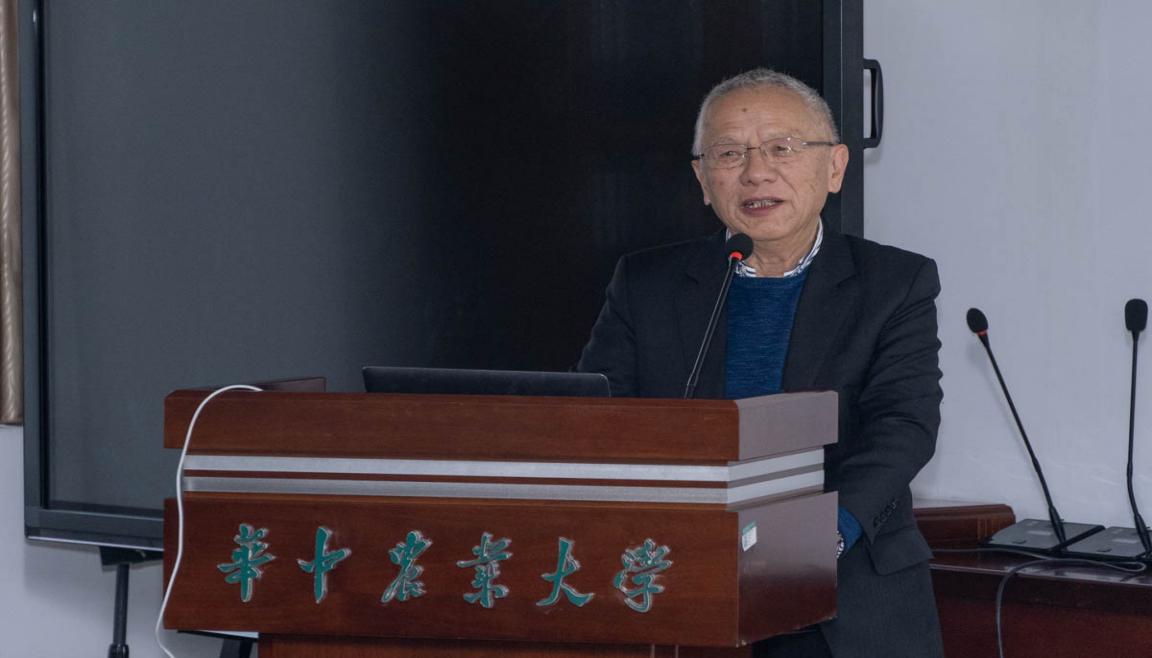Jia-huai Wang, Associate Professor of Dana-Farber Cancer Institute at Harvard Medical School(HMS), lectured on From Waves to Life at HZAU’s Frontier Forum on Integrative Biology, on November 25.
The speech kicked off with the talk of discovering X-rays, which paves the way for the structural analysis of biological molecules. Wang said, “Modern science began more than a century ago when a group of experimental physicists tried to solve the question of ‘what are waves’ proposed by Maxwell. Modern biology began with the discovery of DNA double helix structure.”

Associate Prof. Jia-huai Wang delivering a speech (Photo by Zhang Ziwen)
Then the structural research process of Major Histocompatibility Complex(MHC), an important protein molecule which develops immunology, was introduced. Wang said, “Thanks to the polymorphism of MHC molecules, when a population suffers from a large-scale outbreak of infection with a new pathogen, MHC molecules of some individuals in this population may be complexed with peptide fragments and recognized by T cells, affecting immune responses to secure their hosts. Therefore, MHC is an immune protein fundamental to the survival of species.”
He next raised three key issues of cellular immunity: what is the molecular mechanism of MHC restriction, how MHC molecules present antigen peptides, and how T cell receptors recognize antigen peptides and MHC molecules, and answered questions in detail based on the structural research of various MHCs, MHC-antigen peptides and TCRs.
Lastly, Wang looked forward to the changes that future biological development would bring to human life, highlighted that structural biology would play an important role in the process, and encouraged students to devote themselves to the discipline. The lecture concluded with a discussion between Wang and attendees concerning the prospect of structural biology and approaches to bearing fruit in the scientific research of structural biology for biology majors.
Speaker Profile: Jia-huai Wang is the Associate Professor of Dana-Farber Cancer Institute at Harvard Medical School, the Scientific Counselor at Argonne National Laboratory, and the Adjunct Professor at Peking University. His main research interests include the structure, function, and evolution of the immunoglobulin superfamily in the immune system and nervous system, and the structural biology of virus receptors, etc. Wang has published over 120 academic papers in Nature, Cell, Science, Neuron, PNAS and so forth, and is currently on the editorial boards of Protein & Cell, Progress in Biophysics and Molecular Biology.
Source: http://news.hzau.edu.cn/2019/1126/55819.shtml
Translated by: Guo Yating
Supervised by: Jin Bei
